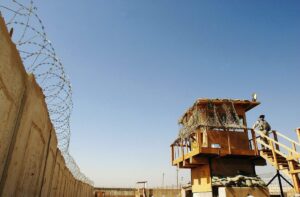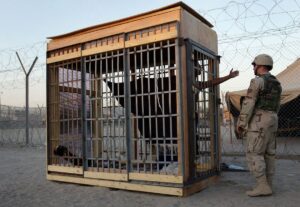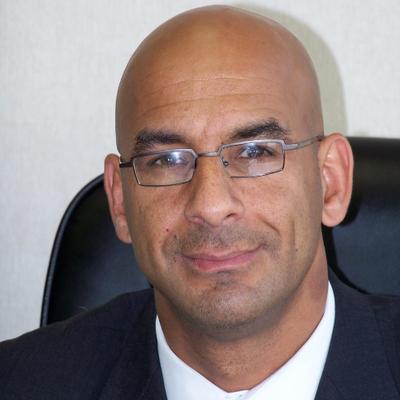On Tuesday, a U.S. jury awarded $42 million to three former detainees at Iraq’s Abu Ghraib prison, who were tortured and mistreated while detained two decades ago. This marks a first, as a federal jury in Virginia has ordered a U.S. company to compensate individuals who suffered abuse in a foreign prison.
The plaintiffs were not American, but Iraqi, represented by Troy attorney Shereef Akeel. He was initially made aware of this horrific situation in 2004 when Saleh, one of the victims from Iraq, visited Dearborn. Saleh shared details of the abuse with Akeel, who previously didn’t know what Abu Ghraib prison was.
Akeel is a Muslim and child of Egyptian parents born in California and raised in Michigan. Upon hearing Saleh’s story, he took immediate action. He traveled to the Middle East to find and interview detainees at Abu Ghraib prison, aiming to file federal lawsuits which resulted in many roadblocks and years of work to get this case in an American courtroom.
Many years later, the plaintiffs — a fruit vendor, a journalist and a middle school principal — were awarded $3 million each in compensatory damages and $11 million each in punitive damages, after the jury ruled in their favor.
The Detroit Free Press reported that they testified that they experienced beatings, sexual abuse, forced nudity and other mistreatment at Abu Ghraib prison.
Although the abuse did not occur on America’s soil, an American jury determined that a U.S. defense contractor should be held responsible for the mistreatment, which was documented in photographs and videos.
Although the abuse did not occur on America’s soil, an American jury determined that a U.S. defense contractor should be held responsible for the mistreatment, which was documented in leaked photographs and videos. Images showed naked and hooded detainees posed in human pyramids, prisoners on leashes and sexual abuse, according to reports.
With years of legal battles to take this case to trial in an American courtroom, the case was finally settled as the jury found the U.S. company liable.
The Detroit Free Press reported that the case relied on a law dating back centuries that was once used to prosecute pirates who abducted French ambassadors.
“This is amazing. America is shining today,” Akeel told the Free Press. “The jury sent a message to the world: If you are working in America’s name, the respect of humanity is universal, whether you are an American or a citizen of another country.
“It’s a confirmation of what we are all about, and how good we can be. The purpose of this case is to show that whether you were tortured in Iraq, the laws of America will reach and hold people accountable.”
The abuse took place two decades ago following the U.S. invasion of Iraq in 2003. The U.S. enlisted a company to interrogate prisoners detained there and, ultimately, horrific pictures of nude detainees being humiliated by police surfaced.
Virginia-based CACI Premier Technology Inc. was hired for the interrogation. Company officials have denied their involvement in the mistreatment of Iraqi inmates, and no CACI interrogators have been criminally charged in this case. They are also contending there is no evidence that they’re liable for what happened at Abu Ghraib, according to reports.

A U.S. soldier stands guard at Abu Ghraib prison west of Baghdad June 19, 2006. – File photo
CACI has also argued that the plaintiffs could not claim “a single contact” with any CACI employee, stating that the plaintiffs falsely wanted to “hold the CACI defendants liable on a co-conspiracy theory for the conduct of others.”
CACI issued a statement on Tuesday stating that it plans to appeal and asserting that the military police, not their employees, are responsible for the abuse.
The statement reads:
“We are extremely disappointed in the verdict. For nearly two decades, CACI has been wrongly subjected to long-term, negative affiliation with the unfortunate and reckless actions of a group of military police at Abu Ghraib prison from 2003 through 2004. The individuals liable for the egregious behavior were court martialed and punished for the crimes that occurred well over a decade ago.
“To be clear: no CACI employee has ever been charged — criminally, civilly or administratively — in this matter. CACI employees did not take part in, nor were any of our employees responsible for these disturbing events. Our view remains that there is no evidence of a conspiracy to abuse detainees, and we will continue to pursue justice by appealing this verdict.”
However, the plaintiffs maintain that the interrogators played a hand in the abuse they suffered, claiming they colluded with the military police to “soften up” detainees by inflicting abuse prior to interrogations.
Their lawsuit alleges that they were “rounded up without cause and subjected to electric shocks, stripped and kept naked, beaten with batons, threatened with dogs and forced into cages. One said he was sexually assaulted by a woman at the prison,” according to the Free Press.
They maintain that the CACI employees “directed and caused much of the egregious torture and abuse” at Abu Ghraib.

A detainee in an outdoor solitary confinement cell talks with a military officer at the Abu Ghraib Prison in June 2004. – File photo
Winning the case
As this case took years to go to trial, Akeel filed it under the Alien Tort Statue, a 1789 federal law that grants foreigners the right to take legal action in U.S. courts for violations of international law.
“We used a very old law,” Akeel said, sharing that most of individuals responsible were held liable, with military police convicted in military courts, except for the contractors.
CACI fought to get the case dismissed with more than 20 attempts, but it finally reached an American courtroom in April 2023. However, the jury deadlocked, meaning no progress was made at the time.
At retrial, a second jury sided in favor of the plaintiffs. One plaintiff testified in person on the first day of the trial and the other two testified on Zoom. U.S. generals, CACI employees and former military police who played a role in the torture also testified during the trial.
“It’s been a long time coming,” Akeel said of the verdict. “You don’t understand. We went through 21 motions. They tried to throw out the case. We traveled to Iraq, to Malaysia to Turkey — and we kept hitting wall after wall until, finally, today the jury spoke.”
A federal lawsuit was filed in 2008 in the U.S. District Court in Virginia against CACI. A U.S. Supreme Court decision stated that the Alien Tort Statute does not apply to other sovereign nations.
CACI attorneys contended that ruling dismissed the case and maintained the Supreme Court’s decision that the statute could not warrant a trial to settle wartime violations that occur in sovereign nations because Iraq was still a sovereign nation under the Coalition Provisional Authority, a transitional government of Iraq established in the country after the U.S. invasion in 2003.
Akeel and his colleagues argued that the ruling by the Supreme Court did not apply, specifically because the U.S. controlled Iraq while their abuse at Abu Ghraib prison ensued.
Baher Azmy, legal director of the Center for Constitutional Rights, thanked the jury for their ruling in holding CACI accountable, “for its role in this shameful episode in American history” as well as “affording our clients the measure of justice they came to a United States court to seek.”
Detroit Free Press report contributed to this report.






Leave a Reply